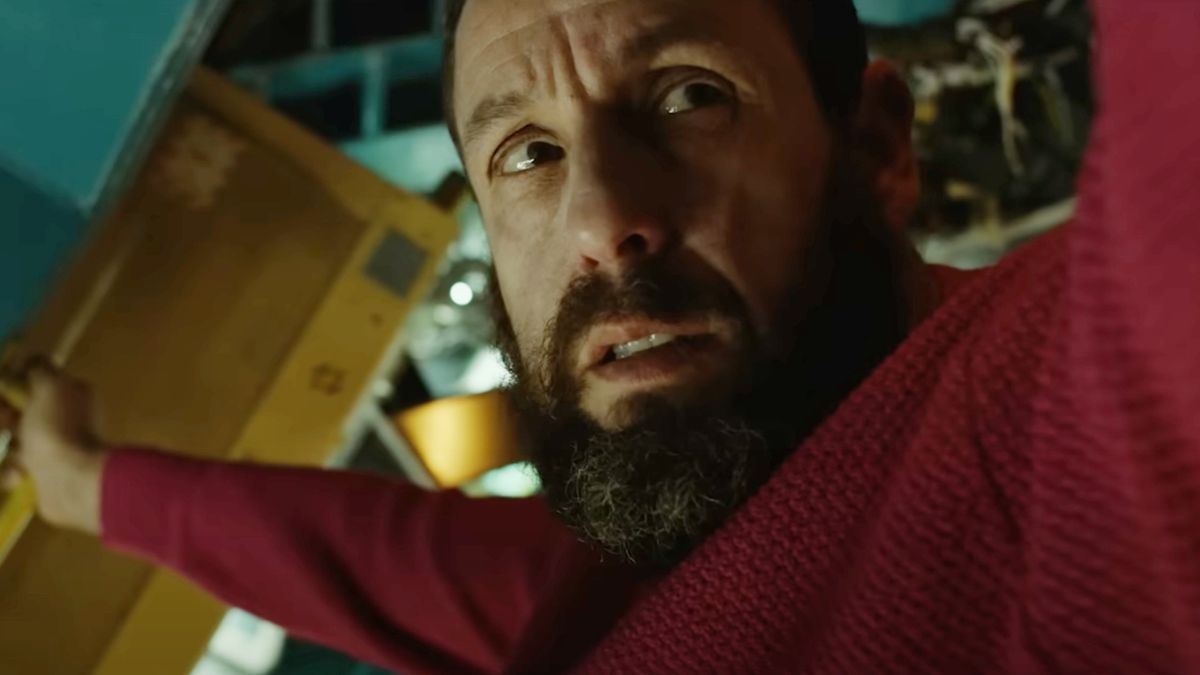
It's not easy to be truly original in today's "go along to get along" world, but rebellious Swedish filmmaker Johan Renck ("Chernobyl") has achieved that rare designation by composing a transcendent fable in the new Netflix film, "Spaceman."
Starring Adam Sandler, Paul Dano as the voice of the ancient arachnid creature named Hanuš, Carey Mulligan, and Isabella Rossellini, "Spaceman" had its world premiere at the Berlin International Film Festival last week and will now launch onto Netflix starting on Mar. 1, 2024.
Here Sandler portrays Jakub, a lonely Czech cosmonaut six months into a solo mission to Jupiter to observe a lavender-tinted cosmic cloud. As he laments his crumbling marriage back on Earth, a benign spider-like beast appears aboard his spacecraft to act as an interstellar therapist to help Jakub heal his heart. It's a dreamlike journey of discovery that resonates deeply as the tale unfolds to a heartfelt conclusion under composer Max Richter's sublime ambient score.
Related: 'Spaceman' sees Adam Sandler shine as a cosmonaut in crisis in Netflix's somber sci-fi film (review)
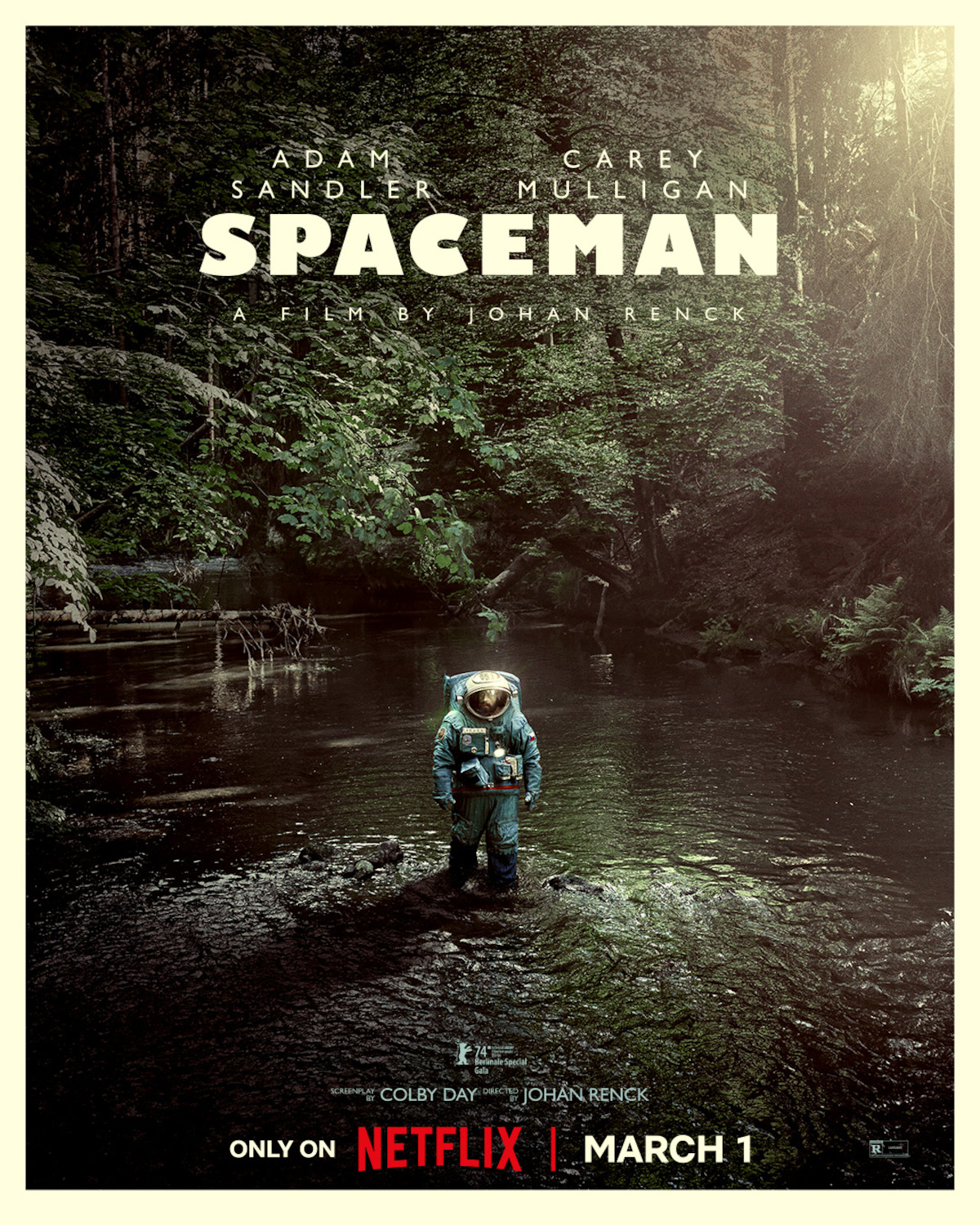
The existential story was adapted from "Spaceman of Bohemia" by Jaroslav Kalfař and it's from this source material that Renck and screenwriter Colby Day forged their cinematic magic.
"I do believe that part of creation is about breaking rules and taking people's experience to places they haven't been before," Renck tells Space.com. "We're in a climate right now that's actually going more towards conservatism in the creation of film and music where everything is regulated by stock markets and profits."
"Spaceman's" originality aligns in tone and spirit with classic cerebral fare like Darren Aronofsky's "The Fountain" or David Cronenberg's "Naked Lunch," something Renck can certainly relate to.
"I see the Kafkaesque aspect of it all to some extent and 'Naked Lunch,'" he adds. "The difference I would say is that Hanuš is real. I've also heard people talk about Tarkovsky and to me that must mean they haven't seen Tarkovsky because this has nothing to do with a Tarkovsky movie, apart from the fact that they're in space in this one and in 'Solaris.' 'Naked Lunch' was a film that really moved the needle for me.
"'Spaceman' is a little more of a romantic film and that is something I've never really done before. With age you do get a little softer and it was interesting to explore the romantic side of things. There's something romantic about this cloud and about space itself, a sort of 19th century Eastern European romantic flavor of it all."
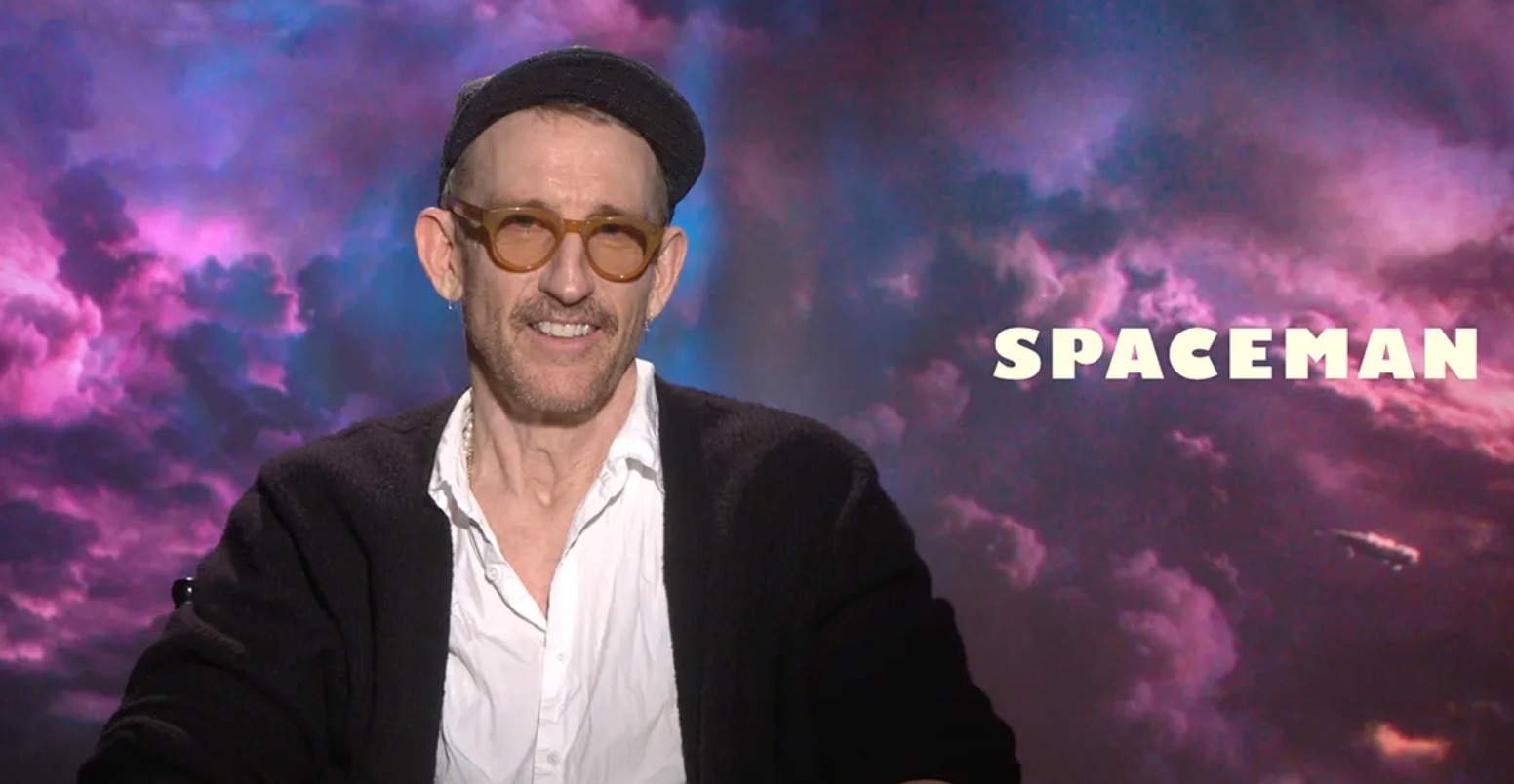
Inspired by the spark of ingenuity that prompted him to take on this project, Renck was moved by the humanity and purity of Kalfař’s 2017 original novel.
"You can only meaningfully do things that you can relate to in one shape or form. For me this was very auto-biographical. I have a number of crashed marriages and relationships behind me due to the fact that I've been chasing my own Chopra Clouds in life too intensively. Jakub is very much a version of myself, and a version of Adam and a version of Carey.
"We have these professions that require us to be away a lot, but also requires a lot of us as persons. I live my job and it takes a lot out of me. For my wife or my kids, I've learned how to navigate and balance it. I have very strict boundaries for that, but I didn't used to. When it comes to the book versus the film, Jaroslav Kalfař was always very cool and open knowing that they'll be two very different things. Because of the impressionist aspect of the book that you cannot carry into the movie, a film has to have a functioning arc."
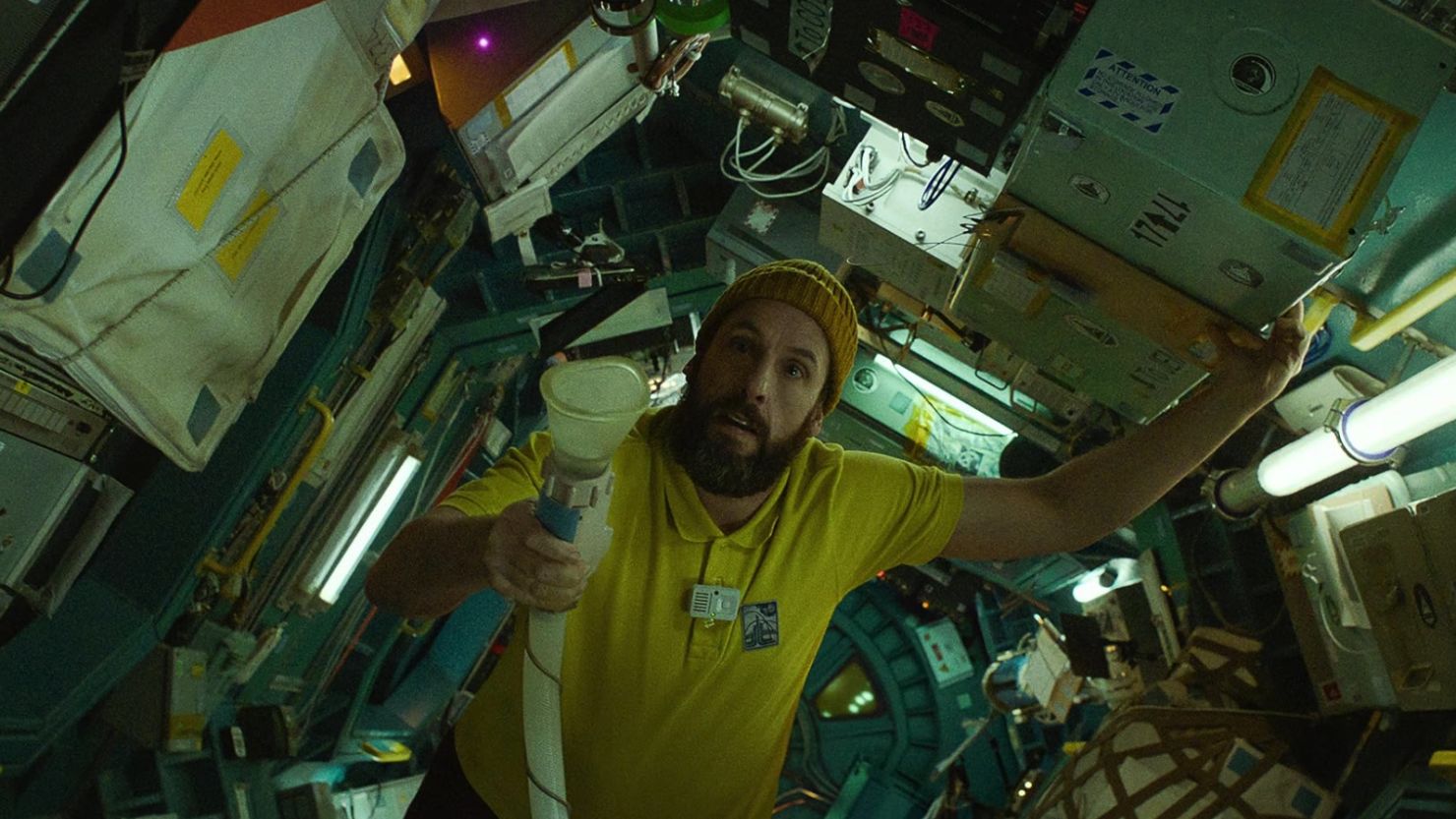
"Spaceman" injects a timeless retro-futurism into its production design that mirrors the film's elements of our cosmonaut physically adrift and emotionally untethered.
"I like films that are timeless, and ones that I don't know what year it is where the presence of time is oblique," Renck notes. "There are form and function reasons. If you're going on a solo journey you’re going to need to be able to fix anything that breaks down on your ship. It's much easier to fix analog stuff than it is to fix digital stuff.
"You also want everything exposed because if something doesn't work after a couple of months you have to be able to find it quickly. My old lawnmower at my country house is about 30 years old and if it breaks down even I can fix it. That's the intention of the spaceship, everything exposed and everything fixable. As an escapist, I just want to invent my own worlds and my own version of a parallel time."
Allowing Sandler and Dano to conjure up an organic screen relationship apart posed certain challenges that the director was able to smoothly hurdle during filming.
"In Adam’s case he had a tremendously challenging task. He was hanging in wires or up in various rigs and that hurts. It's really painful. You have your whole body weight in harnesses and it starts to dig in and after only a few days that pain is going to be unbearable. He's completely alone acting against tennis balls with someone around the corner reading him his lines. So he has to be a pretty remarkable actor to pull that off.
"And Adam is a comedian so he's a ballsy f*ck, he's not afraid of anything or trying new stuff. I wanted him to be reserved and arrogant and I'm blown away by his performance. How subtle it is and how watchable he is.
"Paul was my first and only idea I had for Hanuš. I'm a big fan of his through all the work he's done. His voice has a peculiar cadence and a slight creepiness he has in so many of his characters. Hanuš is cute, disgusting, sweet, and ugly all in one and I thought that Paul's silky weird voice for him was going to be perfect, which it was."
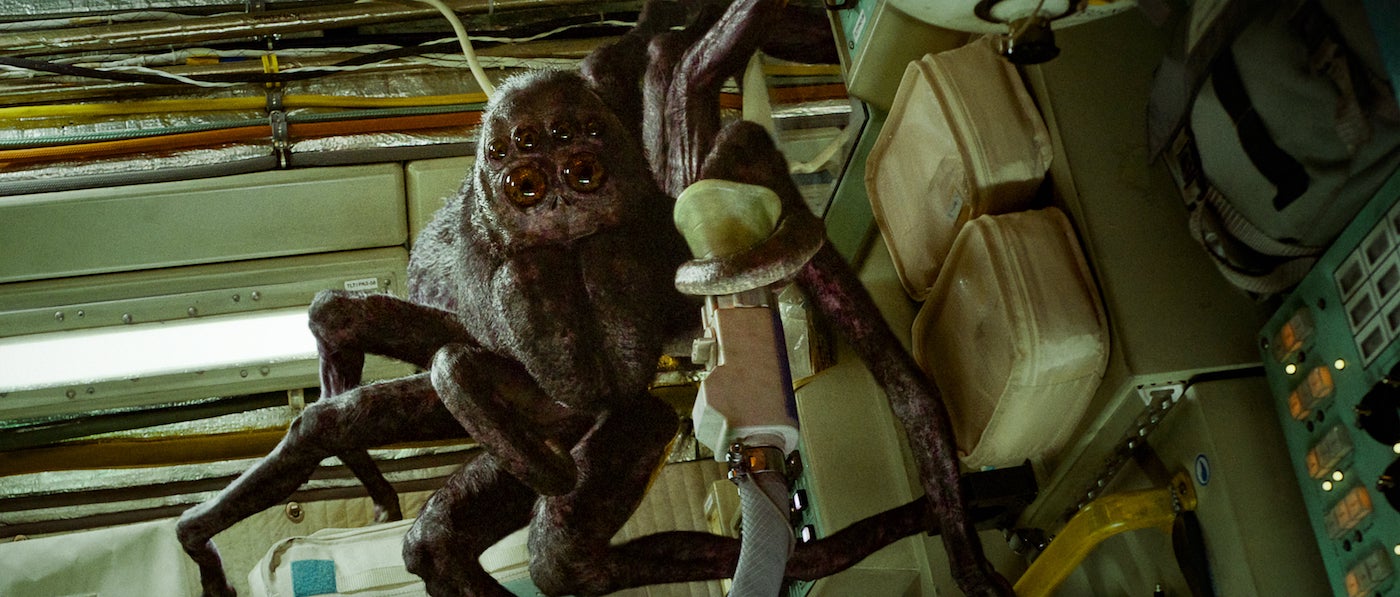
The cherry atop this peculiar sci-fi sundae is composer Max Richter's (Apple TV+'s "Invasion") eerie score for "Spaceman," and Renck's musical background as both a pop performer and veteran music video director made this creative fusion special.
"I use a lot of music in my filmmaking," Renck says. "Max was perfect for this film. He can do anything and his scores are always very beautiful. I wanted the romantic aspect of this film to have significant beauty in its score. Max suggested we make a little song for the end credits. I had the perfect candidate for who I wanted to finalize the song.
"My first idols as a ten-year-old was a '70s glam pop duo from Los Angeles called Sparks, now doing mostly art music. So I linked Ron and Russell and Max together and they wrote 'Don't Go Away,' which is on the end credits. That's a luxurious thing to be able to do, to get to work with your old heroes with music."







